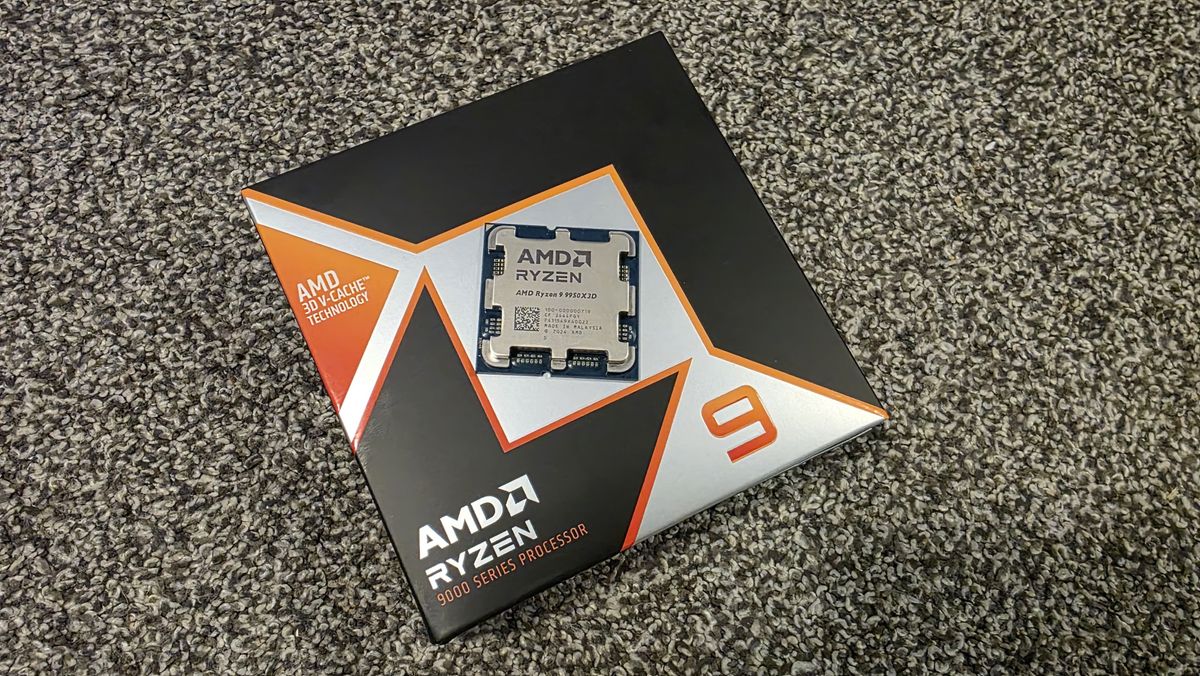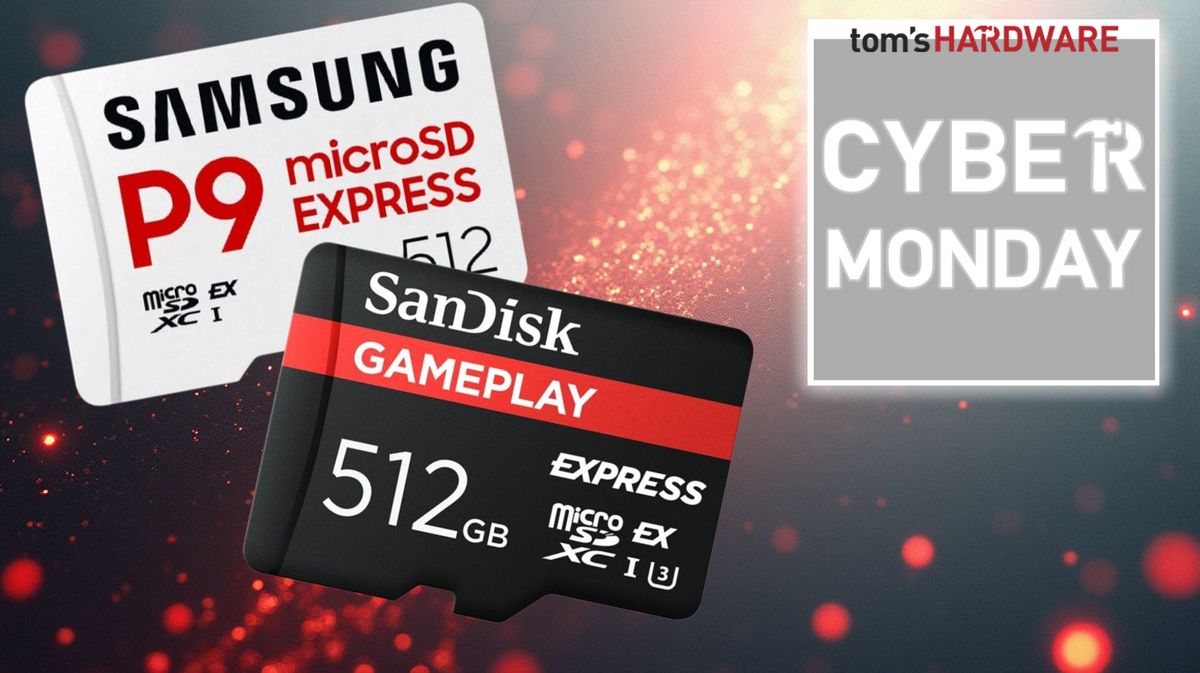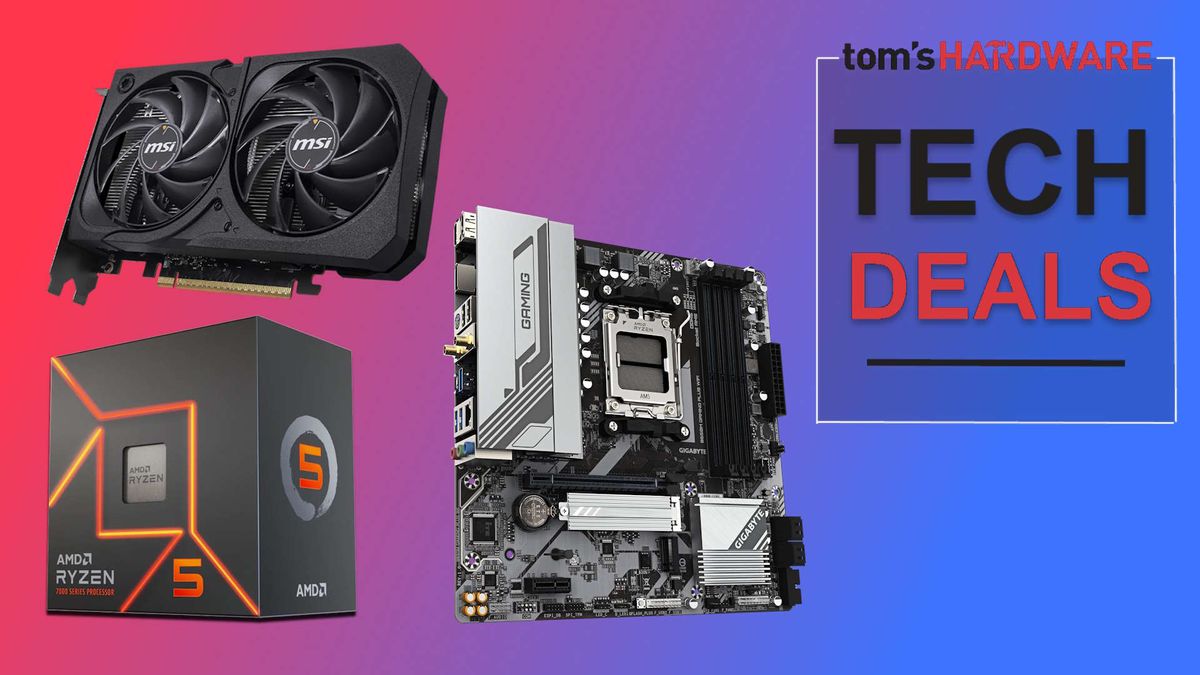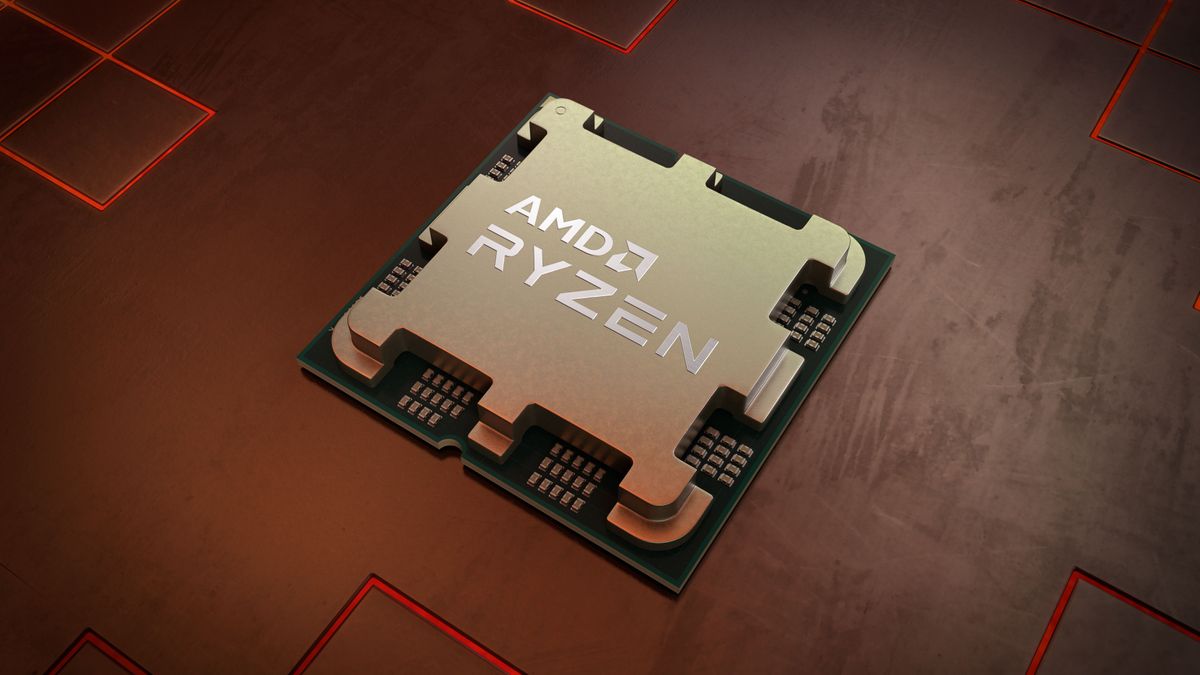Asus has unveiled a new BIOS feature called AI Cache Boost, which is designed to enhance AI performance on systems equipped with AMD’s Ryzen 9000 series processors. The new feature is part of a recent BIOS firmware update for Asus AMD 800 Series motherboards. It focuses on improving the efficiency of data transfers between the CPU cores, cache, and memory, which is crucial for handling extensive AI workloads.
Upon enabling AI Cache Boost in the BIOS under the Extreme Tweaker tab, the system overclocks the Infinity Fabric clock (FCLK) to 2100MHz. This increase in FCLK enhances the bandwidth of data transfers within the CPU architecture, which Asus says facilitates more efficient processing of large datasets commonly associated with LLMs. As per Asus, enabling AI Cache Boost can boost performance by up to 12.75% when working with LLMs (Large Language Models).
This feature is tailored for AI enthusiasts, researchers, and professionals who utilize AMD Ryzen 9000 Series processors, specifically those with AMD 3D V-Cache Technology, like the recently launched Ryzen 9 9950X3D. Asus says it is particularly beneficial for users engaged in AI workloads that involve processing massive datasets, such as training and deploying large language models.
Asus has clarified that the new AI Cache Boost feature is specifically designed to enhance AI workloads, not gaming performance. While the feature can technically be enabled alongside other BIOS settings like GPU Boost, doing so may compromise overall system stability without delivering any noticeable benefit in gaming scenarios.
For users focused solely on maximizing AI capabilities, Asus offers additional tuning options beyond AI Cache Boost. By activating both Game Turbo and AI Cache Boost modes, disabling simultaneous multi-threading, and deactivating one CCD (Core Complex Die) on Ryzen processors, Asus says AI performance can be pushed even further. In fact, Asus own tests on a Ryzen 9 9950X3D configured with a single eight-core chiplet showed up to a 19.4% improvement in AI tasks. As with all company-provided benchmarks, take that with a grain of salt.
Asus conducted internal testing using a system equipped with ROG Crosshair X870E Hero motherboards, Nvidia RTX 5090 or 4090 GPUs, and Ryzen CPUs with AMD 3D V-Cache, showing performance uplifts in various AI benchmarks. In Geekbench AI tests, enabling AI Cache Boost resulted in improvements between 3.4% to 8%, with the Ryzen 7 9800X3D demonstrating the most significant gains. The uplift was similarly positive when tested with previous-gen RTX 4090 GPUs, showing a boost of up to 7.57%.
Swipe to scroll horizontally
| Row 0 - Cell 0 | Default | AI Cache Boost | Improvement |
Single Precision Score | 43932 | 46213 | +5.19% |
Half Precision Score | 63464 | 67009 | +5.59% |
Quantized Score | 32197 | 33347 | +3.57% |
Swipe to scroll horizontally
| Row 0 - Cell 0 | Default | AI Cache Boost | Improvement |
Single Precision Score | 43625 | 46074 | +5.61% |
Half Precision Score | 62772 | 66744 | +6.33% |
Quantized Score | 32169 | 33275 | +3.44% |
Swipe to scroll horizontally
| Row 0 - Cell 0 | Default | AI Cache Boost | Improvement |
Single Precision Score | 44099 | 46965 | +6.50% |
Half Precision Score | 63365 | 68393 | +7.93% |
Quantized Score | 32480 | 33774 | +3.98% |
Swipe to scroll horizontally
| Row 0 - Cell 0 | Default | AI Cache Boost | Improvement |
Single Precision Score | 37480 | 40181 | +6.19% |
Half Precision Score | 51786 | 54392 | +5.03% |
Quantized Score | 28097 | 29118 | +3.63% |
Swipe to scroll horizontally
| Row 0 - Cell 0 | Default | AI Cache Boost | Improvement |
Single Precision Score | 37866 | 39777 | +5.05% |
Half Precision Score | 51782 | 53642 | +3.59% |
Quantized Score | 28157 | 28798 | +2.28% |
Swipe to scroll horizontally
| Row 0 - Cell 0 | Default | AI Cache Boost | Improvement |
Single Precision Score | 38191 | 40788 | +6.80% |
Half Precision Score | 52531 | 56509 | +7.57% |
Quantized Score | 28247 | 29536 | +4.56% |
Swipe to scroll horizontally
| Row 0 - Cell 0 | Default | AI Cache Boost | Improvement |
Single Precision Score | 38277 | 40441 | +5.65% |
Half Precision Score | 52465 | 55823 | +6.40% |
Quantized Score | 28373 | 29284 | +3.21% |
Asus testing using the UL Procyon AI Computer Vision Benchmark the Ryzen 7 9800X3D achieved double-digit improvements of up to 12.75%. As mentioned earlier, Asus says combining AI Cache Boost with Turbo Game Mode can yield even higher gains. For example, the company says the Ryzen 9 9950X3D saw up to a 19.35% performance increase in specific AI workloads when both features were enabled. This combination is particularly beneficial for AI users whose tasks don’t fully utilize the CPU's multithreading capabilities.
Swipe to scroll horizontally
| Row 0 - Cell 0 | Default | AI Cache Boost | Improvement |
AMD Ryzen 9 9950X3D | 1426 | 1485 | +4.14% |
AMD Ryzen 9 9900X3D | 1417 | 1473 | +4.00% |
AMD Ryzen 7 9800X3D | 1490 | 1680 | +12.75% |
AMD Ryzen 9 9950X | 1439 | 1475 | +2.50% |
Swipe to scroll horizontally
| Row 0 - Cell 0 | Default | AI Cache Boost | Turbo Game Mode | Improvement |
AMD Ryzen 9 9950X3D | 1426 | 1485 | 1702 | +19.35% |
AMD Ryzen 9 9900X3D | 1417 | 1473 | 1570 | +10.80% |
If it works as advertised, the AI Cache Boost features could be a straightforward way for Ryzen 9000 series users to extract more performance out of their systems when working with AI-related tasks.

 8 months ago
90
8 months ago
90







 English (US) ·
English (US) ·